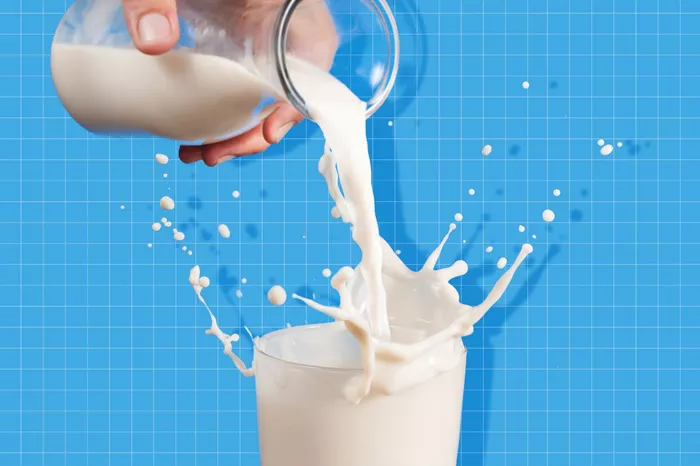Rhinoplasty, commonly known as a nose job, is a surgical procedure aimed at reshaping the nose for either cosmetic or medical reasons. Post-surgery care is crucial for ensuring a smooth recovery and achieving the desired results. One common question patients have is whether they can drink milk after undergoing rhinoplasty. This article delves into the dietary considerations, particularly milk consumption, following rhinoplasty and provides guidance on how to manage your diet during the recovery period.
The Importance of Post-Surgery Diet
Supporting the Healing Process
After rhinoplasty, your body needs the right nutrients to heal properly. A balanced diet rich in vitamins, minerals, and proteins supports tissue repair, reduces inflammation, and boosts the immune system. Proper nutrition can significantly impact the speed and quality of your recovery.
Avoiding Inflammatory Foods
Certain foods can exacerbate inflammation, which can delay the healing process and increase discomfort. Foods high in sugar, saturated fats, and refined carbohydrates are known to promote inflammation. It’s essential to be mindful of your diet to avoid complications and ensure optimal healing.
Milk and Dairy Products: Friend or Foe?
Nutritional Benefits of Milk
Milk is a good source of calcium, vitamin D, and protein, all of which are vital for overall health. These nutrients are particularly important for bone health and tissue repair. However, there are some concerns about consuming milk and dairy products after surgery.
Potential Issues with Milk Consumption
Milk and other dairy products can sometimes cause mucus production, which can be problematic after rhinoplasty. Excess mucus can lead to congestion, making breathing more difficult and potentially increasing the risk of infection. Additionally, some individuals are lactose intolerant or have dairy allergies, which can lead to digestive issues and discomfort.
Evaluating Milk Consumption After Rhinoplasty
Individual Considerations
Whether or not you can drink milk after rhinoplasty largely depends on your individual circumstances. Here are some factors to consider:
Lactose Intolerance: If you are lactose intolerant, consuming milk can cause bloating, gas, and diarrhea, which can be uncomfortable during recovery.
Mucus Production: If you are prone to increased mucus production after consuming dairy, it might be best to avoid milk for a few weeks post-surgery.
Personal Preferences: Some people may simply prefer to avoid dairy for personal or dietary reasons.
Consulting Your Surgeon
Your surgeon is the best source of advice regarding post-rhinoplasty care, including dietary restrictions. They can provide personalized recommendations based on your medical history, the specifics of your surgery, and your overall health.
Alternative Sources of Nutrients
Plant-Based Milks
If you decide to avoid cow’s milk, there are several plant-based alternatives available, such as almond milk, soy milk, and oat milk. These alternatives can provide essential nutrients without the potential drawbacks of dairy. Make sure to choose fortified versions that contain added calcium and vitamin D.
Non-Dairy Sources of Calcium and Protein
You can also obtain calcium and protein from non-dairy sources. Foods like leafy green vegetables, tofu, nuts, seeds, and legumes are excellent options. Including a variety of these foods in your diet can help you meet your nutritional needs without relying on dairy.
See also: When Can I Eat Spicy Food After Rhinoplasty?
General Dietary Tips for Post-Rhinoplasty Recovery
Stay Hydrated
Hydration is crucial for healing. Drinking plenty of water helps maintain tissue health, supports the immune system, and reduces the risk of constipation, which can be a side effect of pain medications.
Eat a Balanced Diet
Focus on consuming a variety of nutrient-dense foods. Include plenty of fruits, vegetables, whole grains, lean proteins, and healthy fats. This will provide your body with the necessary vitamins and minerals to support healing.
Avoid Spicy and Hard Foods
Spicy foods can cause irritation and increase swelling, while hard foods may require excessive chewing, which can strain the nasal area. Stick to soft, bland foods during the initial recovery phase.
Manage Inflammation with Anti-Inflammatory Foods
Incorporate anti-inflammatory foods into your diet to help reduce swelling and promote healing. Foods rich in omega-3 fatty acids, such as salmon, walnuts, and flaxseeds, as well as fruits and vegetables like berries, leafy greens, and tomatoes, can be beneficial.
The Role of Supplements
Vitamins and Minerals
In addition to a balanced diet, certain supplements may support your recovery. Vitamin C is known for its role in collagen production, which is essential for tissue repair. Zinc supports the immune system and wound healing. Always consult your surgeon before starting any new supplements.
Protein Supplements
If you find it challenging to meet your protein needs through food alone, protein supplements can be a convenient option. Protein shakes made from whey, soy, or pea protein can help you maintain adequate protein intake.
Monitoring Your Recovery
Keeping Track of Symptoms
Pay close attention to how your body responds to different foods and beverages. If you notice increased mucus production, digestive discomfort, or other issues after consuming dairy, consider eliminating it from your diet temporarily.
Regular Follow-Ups with Your Surgeon
Regular check-ups with your surgeon are essential for monitoring your progress and addressing any concerns. During these appointments, discuss any dietary issues you may be experiencing and get professional advice tailored to your recovery.
Conclusion
In conclusion, whether or not you can drink milk after rhinoplasty depends on various factors, including your individual tolerance to dairy and the advice of your surgeon. While milk provides essential nutrients, it can also cause mucus production and digestive issues in some individuals. Exploring plant-based alternatives and non-dairy sources of calcium and protein can help you meet your nutritional needs without compromising your recovery. Always prioritize a balanced diet, stay hydrated, and consult your surgeon for personalized recommendations. By taking these steps, you can support your healing process and achieve the best possible outcome from your rhinoplasty.
Related topics:
can I eat chocolate after rhInoplasty?
Is Nose Taping Necessary After Rhinoplasty?
How Long For Bruising To Heal After Rhinoplasty?

